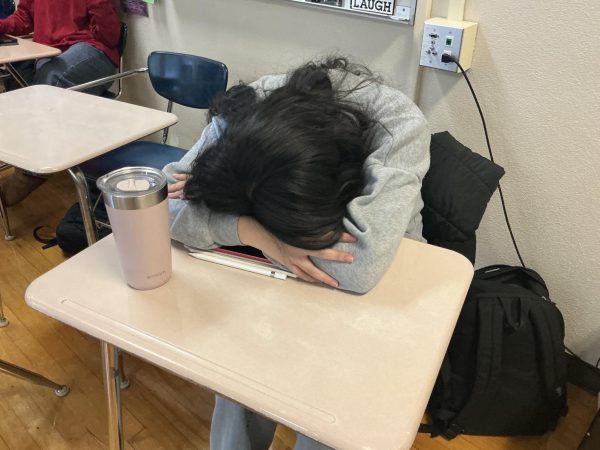Have you ever found yourself struggling to keep your eyes open in class, staring at your textbook and trying to focus? Have you ever felt like no amount of caffeine could be enough to keep you awake during the day? If so, you’re not alone. From schoolwork, extracurricular activities and social commitments, to late-night screen time, sleep deprivation has become a common issue among students.
Why are so many students sleep-deprived?
According to research by the American Physical Therapy Association, 72.7% of high school students are sleep-deprived, with about 20% reporting sleeping fewer than 6 hours a night. There are several reasons why students struggle to get the recommended amount of sleep, which is at least 8 hours a day. One major factor is the intense pressure to succeed, especially in high-achieving communities, as they have to work for the competitive college slots. It is common that we find students who are overwhelmed balancing advanced classes, sports, social service, or even part-time jobs. At the same time, electronic devices play a significant role as scrolling through social media, streaming shows, or gaming late at night have become a common habit that disrupts healthy sleep routines.
What are the consequences?
The two most common consequences of not having enough sleep are, according to a research by Idaho State University, a reduction in concentration and memory, making it hard to perform well academically. Students with lack of sleep are also more likely to experience mood swings as they become more irritable and anxious, increasing negative emotions such as stress and depression, which can affect their relationships with others and further exacerbate academic problems.
Beyond academics, our physical health can be seriously impacted. Chronic sleep deprivation weakens the immune system, according to the National Institutes of Health, leading to many health problems, including heart disease, kidney disease, high blood pressure, diabetes, and stroke.
Tips for better sleep
Here are some strategies recommended by the American Academy of Sleep Medicine to help students get more sleep:
- Get out of bed and do something until you feel sleepy if you’re having trouble falling asleep.
- Use your bed for sleep only. Avoid studying, reading, or watching TV in bed.
- Limit nap time within less than an hour.
- Go to bed and wake up at the same time on weekends as you do on weekdays.
- Dim the lights at night to signal your body that it will be time to sleep soon.
- Take some time to relax quietly for 15 to 30 minutes before going to bed without using electronics.


